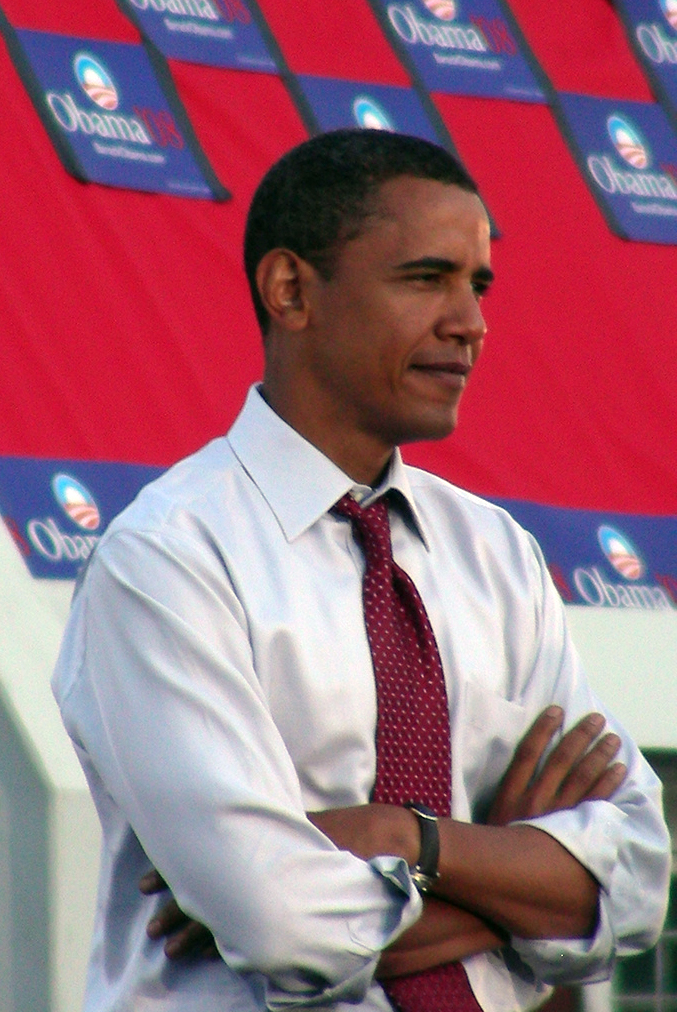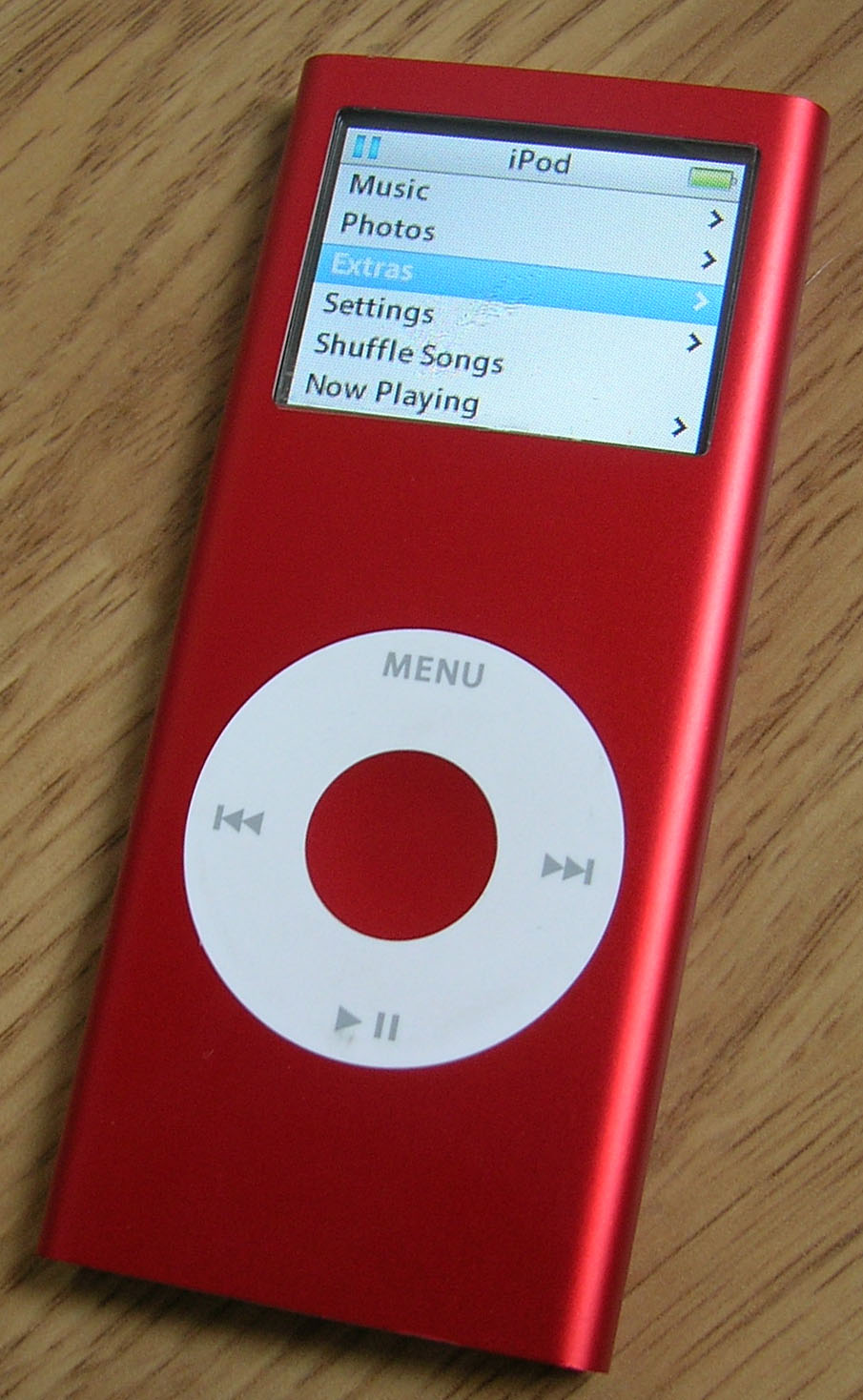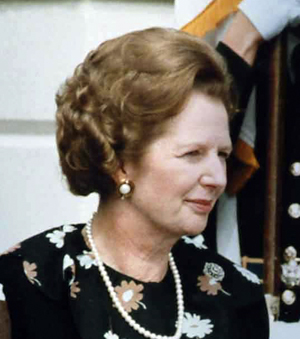 More than once in this campaign year, Sen. Hillary Clinton has tried to establish a contrast between herself and Sen. Barack Obama, her challenger for the Democratic nomination for the presidency.
More than once in this campaign year, Sen. Hillary Clinton has tried to establish a contrast between herself and Sen. Barack Obama, her challenger for the Democratic nomination for the presidency. With the reflexive use of the word “experience” in her campaign rallies, in reference to herself, she’s called into question Obama’s time in the national spotlight, his comprehension of the levers of presidential power — in effect, the very essence of his campaign’s right to exist.
It’s been to now a fruitless attempt to suggest that Obama has no political throw weight — no substance underneath the inspirational surfaces of his public persona. With eight consecutive losses in a row, Hillary’s not reaching people with this argument, not necessarily because it’s a bad argument, but because people don’t believe it.
 They are starting to see behind the dull omnipresence of policy. They are starting to see how, with more than policy statements, more than wonkish recitations of data and fact, Barack Obama embodies another necessary reality of a presidential campaign. In addition to wielding the hard facts necessary for a credible run — and there are plenty of his well-articulated positions on everything that matters, if people bother to look — Obama embodies the substance of our symbolism, our peculiarly American way of politics, indeed, our way of life.
They are starting to see behind the dull omnipresence of policy. They are starting to see how, with more than policy statements, more than wonkish recitations of data and fact, Barack Obama embodies another necessary reality of a presidential campaign. In addition to wielding the hard facts necessary for a credible run — and there are plenty of his well-articulated positions on everything that matters, if people bother to look — Obama embodies the substance of our symbolism, our peculiarly American way of politics, indeed, our way of life.◊ ◊ ◊
Consider the U.S. moonshot program. President Kennedy’s daring throwdown in 1961, and its successful resolution some eight years later, would come to be couched and justified in scientific terms. It would aid scientists immeasurably in understanding the genesis and composition of the solar system; it would further the field of planetary research, etc., etc. And not to be dismissive: those reasons and more form a scientifically defensible justification for the undertaking.
But for many people, maybe even most people, that doesn’t feel like the real reason. President Kennedy’s cosmic gambit seemed to have something else at its core, something deeper than science, like a schoolyard dare on steroids, a nod to the human drama of competition, an unprecedented variation on your own backyard bravado when you challenged the neighbor kid to see who had the better arm, to find out who could throw that stone the farthest unimaginable distance.
That dare didn’t originate in Palm Springs with Kennedy sipping martinis with Frank Sinatra, playing his version of “Fly Me to the Moon” on the stereo. It started in the heart, not as a policy but as a possibility. What it said to this country about this country is no less substantial than facts of its infrastructure or the number of hospital beds available to the poor.
◊ ◊ ◊
Arthur Miller understood the power of symbol. "Democracy is first of all a state of feeling," he observed in "Making Crowds," his 1972 essay on the George McGovern presidential campaign. "A nominee, and later a president, is not a sort of methodical lawyer hired to win a client's claim but an ambiguously symbolic figure upon whom is projected the conflicting desires of an audience."
 Barbara Ehrenreich, writing in The Nation on a contrast of Clinton and Obama, glimpsed the distinctions, between 2008's candidates: “While Clinton, the designated valedictorian, reaches out for the ego and super-ego, he supposedly goes for the id. She might as well be promoting choral singing in the face of Beatlemania.”
Barbara Ehrenreich, writing in The Nation on a contrast of Clinton and Obama, glimpsed the distinctions, between 2008's candidates: “While Clinton, the designated valedictorian, reaches out for the ego and super-ego, he supposedly goes for the id. She might as well be promoting choral singing in the face of Beatlemania.”A purely emotional response? For sure, but not to be easily dismissed. Americans have been so oratorically impoverished over the past eight years, maybe it’s no wonder that the emotional aspects of the Obama campaign have been so resonant for so many.
 Consider that factor common to personal technology, from Internet browsers to portable music players. It’s called “look-and-feel.” The look-and-feel factor ultimately can’t be assessed according to metrics or data; it’s first and foremost an emotional response to the operability of a device or a system — its ease of use, the way it navigates, the way it looks, the way it feels in your hand.
Consider that factor common to personal technology, from Internet browsers to portable music players. It’s called “look-and-feel.” The look-and-feel factor ultimately can’t be assessed according to metrics or data; it’s first and foremost an emotional response to the operability of a device or a system — its ease of use, the way it navigates, the way it looks, the way it feels in your hand. By all available evidence, then, to this point, the Obama campaign exhibits the look and feel of an everyday companion article, portable, comfortable, accessible, information-rich. Barack Obama is to Hillary Clinton what the iPod is to the CD player.
What’s shaping up on the Republican side? When former Massachusetts Gov. Mitt Romney threw his delegates to Arizona Sen. John McCain, the announcement photo-op — with McCain standing among the party’s old warhorses — was sadly astonishing in its inability to embrace the emerging America of 2008.
 “Trapped in an archaic black-and-white newsreel, the G.O.P. looks more like a nostalgic relic than a national political party in contemporary America,” Frank Rich said in the Feb. 17 New York Times. “A cultural sea change has passed it by.”
“Trapped in an archaic black-and-white newsreel, the G.O.P. looks more like a nostalgic relic than a national political party in contemporary America,” Frank Rich said in the Feb. 17 New York Times. “A cultural sea change has passed it by.” Look-and-feel? Barack Obama is to John McCain what the iPod is to the phonograph.
◊ ◊ ◊
Barack Obama would go a long way to creating a climate for atonement, not just (or even necessarily) the narrow and cynical definition of atonement vis-à-vis the tragedy of the American racial dynamic. True enough, Obama as our first biracial president would signal a vast departure from our racial past, beginning the Sisyphean challenge of freeing blacks and whites alike from the mutual burdens of racial suspicion.
 “Can’t we all just get along?” Rodney King asked years ago, in the height of Los Angeles’ tragic racial drama. Barack Obama is the living, breathing proof that yes we can get along, and at the most personal, most intimate levels of human interaction.
“Can’t we all just get along?” Rodney King asked years ago, in the height of Los Angeles’ tragic racial drama. Barack Obama is the living, breathing proof that yes we can get along, and at the most personal, most intimate levels of human interaction. “I’ve got relatives that look like Bernie Mac and I've got relatives that look like Margaret Thatcher,” the candidate said once to Oprah Winfrey. “We’ve got it all.”
It’s hard to play down symbolism when your opponent is literally a symbol himself.
 But Obama as president would also go some distance to healing the global breach with our neighbors, lately alienated and greatly confused by our behavior on the other side of the fence. Domestically and abroad, it’s less a matter of making atonement than of reaching accord.
But Obama as president would also go some distance to healing the global breach with our neighbors, lately alienated and greatly confused by our behavior on the other side of the fence. Domestically and abroad, it’s less a matter of making atonement than of reaching accord.You can make the case that Obama has already taken the first step toward that scale of national and global reconciliation by the very act of running for the presidency.
Setting aside the monumental stones required for anyone to seek the presidency in any political season, think of the towering sense of self, the self-possession needed to seek the office in this tumultuous year. Now add to that the historically outsized daring to run for the American presidency during an era rife with Islamist terrorism or the fear of same — and to do it with an Islamic surname. The outright nerve of such a conceit, the seemingly impossible irony at its very essence, is unmistakably American: the Obama campaign perfectly reflects — distills — our proven national ability to look at the impossible and see the possible within.
Yes, one phrase naturally follows, as full of sarcasm as it is of wonder: Only in America. And there’s the deeper truth, one understood by Andrew Sullivan, the conservative (!) columnist, writing brilliantly in The Atlantic.com, (and last April 24, no less): “The simple existence of Obama as a new president in a new century would in itself enhance America's soft power immeasurably, just as a clear decision to leave Iraq would provide much greater leverage for diplomacy and military force in a whole variety of new ways. Obama would mean the rebranding of America, after a disastrous eight years. His international heritage, his racial journey, his middle name: these are assets for this country, not liabilities.
“This is the reason for his ascendancy. This is what the American people sense and the world awaits. This is what the Islamists fear. That last alone is reason to feel hope.”
◊ ◊ ◊
That hope Sullivan mentions and which Obama has all but trademarked as a campaign basic has many believers. The fact that so many Republicans are coming aboard, publicly or privately, suggests that the base and bedrock of the Republican Party — not the Beltway ideologues and the talk-radio pit bulls, but ordinary Republicans, everyday people who live life down here on the ground — have found in Obama someone who embodied at least some of the very principles they’d been looking for.
“We are the people we‘ve been looking for,” Obama said recently to a roomful of Democrats (apparently quoting Maria Shriver quoting a saying from the Hopi Indians*). He might well have been saying that to Republicans too. And his reach across that aisle, his pursuit of that kind of political common cause, is less about singing “Kum Ba Yah” and more about practicing the realpolitik necessary to position this nation for a torrent of changes to come, whether we’re ready or not.

For eight years we’ve had a CEO, manager, controller, autocrat, tyrant and neighborhood bully in the White House — the descriptors of the Bush brain trust.
Barack Obama, whether his opponents think so or not, has much of the textbook, practical experience to be president: organizer, professor, thinker — all are the macro-word bullet words in his resume. He would be able to wield power and authority like any president; the awesome leverages of the office will see to that. From day one.
But for the first time in far too long, this country will have a leader — someone for whom the American people will symbolize a spirit instead of a catchphrase; someone for whom conviction is not a matter of convenience but the bedrock that anchors the pilings of his ideas and policies; someone whose life trajectory is an index to the possibilities within our own lives.
Symbols are important in American politics, indeed, American politics couldn't exist without them. They are central to the American ethos; they are the other substance of this nation, and this watershed campaign.
-----
Image credits: Obama: realjames016, republished under Creative Commons Attribution 2.0 LIcense. iPod: Original uploader: O mores > Wikipedia, reproduced as fair use under the GNU Free Documentation License. CD player: Joonga, released to public domain. Record player: Wikipedia, licensed under Creative Commons Attribution License 2.0, reproduced for fair use. Bernie Mac, 2007: Rosie Argento, licensed under Creative Commons Attribution 2.0 > Wikipedia. Margaret Thatcher: Public domain. Obama rally: roxannejomitchell, reproduced under permissions in Creative Commons Attribution Share-Alike license 2.0. Clinton and McCain images: U.S. Government (public domain). * Thank you Maureen Dowd of The New York Times.






1 comment:
Fabulous post. I switched party registration so I can vote for Obama in my primary, so I guess I count as an Obama Republican, although I was never really a Republican in the modern sense of the party (socially liberal). I just hope the Democratic Party will embrace Obama as their candidate, because it would be a huge mistake not to. I will not vote for Hillary if she wins the nomination.
Post a Comment